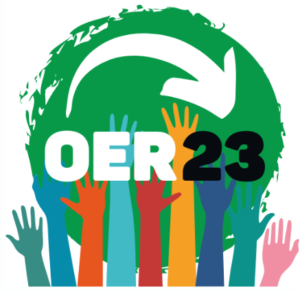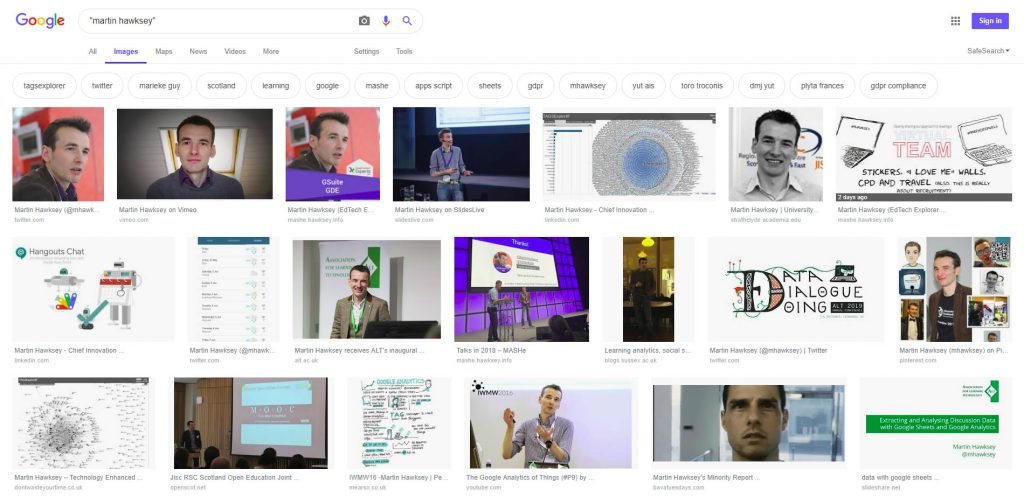 To mark 10 years of the Open Scotland initiative we will be holding two events as part of the OER23 Conference to bring together members of the education community in Scotland to reflect on how the open education landscape in Scotland has evolved over the last decade against the backdrop of global crisis and uncertainty (Campbell and Wilson 2021). Hosted by ALT and the University of the Highlands and Islands, the OER Conference is taking place in Scotland for the first time since 2016. One of the main themes of the conference is “Open Education in Scotland – celebrating 10 years of the Scottish Open Education Declaration.”
To mark 10 years of the Open Scotland initiative we will be holding two events as part of the OER23 Conference to bring together members of the education community in Scotland to reflect on how the open education landscape in Scotland has evolved over the last decade against the backdrop of global crisis and uncertainty (Campbell and Wilson 2021). Hosted by ALT and the University of the Highlands and Islands, the OER Conference is taking place in Scotland for the first time since 2016. One of the main themes of the conference is “Open Education in Scotland – celebrating 10 years of the Scottish Open Education Declaration.”
Thigibh a-steach! Come and join us at the OER23 Conference in Inverness to contribute to shaping the future of open education in Scotland.
Open Scotland Pre-Conference Workshop
When: Tuesday 4th April, 15.30 – 17.00
Where: UHI Inverness and online
Who: Open to all.
This pre-conference workshop, facilitated by Joe Wilson and Lorna M. Campbell, will reflect on the Open Scotland initiative and discuss ways forward for the open education community. We’ll briefly address the history and impact of Open Scotland and explore the role of Open Scotland and the Scottish Open Education Declaration going forward.
We’ll ask whether the aims of Open Scotland are still relevant, whether the Scottish Open Education Declaration has a role to play in the future, and how it can be reframed to reflect current challenges and priorities.
How can we encourage more teachers, learners and education institutions across the sector to engage with open education?
How do we ensure that the Scottish education community tunes in to global open practice and makes most of the possibilities of open educational resources , open research , open textbooks and other opportunities?
Can we effectively lobby the Scottish Government to adopt policies that support open education and OER at the national level?
How can we in Scotland, the UK, and internationally, align with the principles of the UNESCO Recommendation on OER (UNESCO 2019)?
We invite key leaders, influencers, educators, open practitioners and advocates across the Scottish education community to join us. This workshop is free and open to all. Remote participation will be available for those who are unable to join us in Inverness.
Registration
If you are not an OER23 delegate, please register here in order to participate: Open Scotland Pre Conference Session for External Delegates
OER23 Conference Closing Plenary: OpenScotland @10
When: Thursday 6th April, 16.20 – 17.00
Where: UHI Inverness and online
Who: OER23 Conference delegates
The closing plenary panel of the OER23 Conference will bring together open education advocates from Scotland and The Netherlands to reflect on the open education landscape in Scotland and internationally. We’ll discuss engagement with open education across Scotland, focusing on the benefits and affordances of open education and OER and how it can help to address local and global education challenges and priorities, while reflecting on the relevance of the original aim of Open Scotland: To raise awareness of open education, encourage the sharing of open educational resources, and explore the potential of open policy and practice to benefit all sectors of Scottish education.
Panel participants: Lorna M. Campbell, Open Scotland and University of Edinburgh; Scott Connor, UHI; Maren Deepwell, ALT; Stuart Nicol, University of Edinburgh; Robert Schuwer, consultant and former UNESCO Chair on Open Educational Resources; Joe Wilson, Open Scotland and City of Glasgow College.
Background
Open Scotland is a voluntary cross-sector initiative, established in 2013, to raise awareness of open education, encourage the sharing of open educational resources, and explore the potential of open policy and practice to benefit all sectors of Scottish education. In the decade since its launch, Open Scotland has been supported by Cetis, the Scottish Qualifications Authority, the Association for Learning Technology, Reclaim Hosting, the University of Edinburgh and Creative Commons. Openness remains a key strategic principle for many of these organisations.
In order to achieve its aims, Open Scotland hosted the Open Scotland Summit (2013) and Open Education, Open Scotland (2014) at the University of Edinburgh, which brought together senior managers, policy makers and key thinkers to explore the development of open education policy and practice in Scotland. Members of Open Scotland contributed regularly to national conferences, and participated in international events including Open Education Global in Ljubljana, OERde14 in Berlin, Morocco Open Education Day, the Open Education Policy Network, UNESCO European Regional Consultation in Malta, and the 2017 UNESCO OER World Congress.
In 2014, inspired by the UNESCO Paris OER Declaration (UNESCO 2012), Open Scotland launched the Scottish Open Education Declaration (Open Scotland 2014), an open draft document that all members of the community were invited to contribute to. The Declaration called on the Scottish Government, the Scottish Funding Council and all sectors of Scottish education to endorse the principles of the UNESCO OER Declaration and ensure that educational materials produced with public funding are freely and openly available to all. With support from ALT Scotland and Creative Commons, the Declaration was brought to the attention of three consecutive Cabinet Secretaries of Education, however the Scottish Government declined to engage with these principles. Despite this lack of response, the Scottish Open Education Declaration has been influential elsewhere. It inspired the OER Morocco Declaration (Berrada and Almakari 2017), informed the OpenMed Project, and has raised awareness of open education within institutions, triggering discussions about open education at policy level.
References
Berrada, K. and Almakari, A. (2017) Déclaration du Maroc sur les Ressources Educatives Libres / OER Morocco Declaration. Available at: https://openmedproject.eu/wp-content/uploads/OER-Morocco-Declaration.pdf (Accessed: 9 January 2023).
Campbell, L.M. and Wilson, J. (2021) Open Educational Resources: An equitable future for education in Scotland. Available at: https://openscot.net/further-education/open-educational-resources-an-equitable-future-for-education-in-scotland/ (Accessed: 9 January 2023).
Open Scotland. (2014) Scottish Open Education Declaration. Available at: https://declaration.openscot.net/ (Accessed: 9 January 2023).
UNESCO. (2012) The Paris OER Declaration. Available at: https://en.unesco.org/oer/paris-declaration (Accessed: 9 January 2023).
UNESCO. (2019) Recommendation on Open Educational Resources. Available at: https://www.unesco.org/en/legal-affairs/recommendation-open-educational-resources-oer (Accessed: 9 January 2023).


